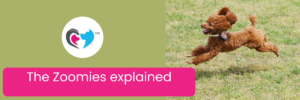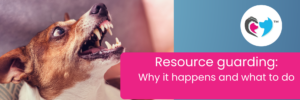Adolescence is a challenging phase not only for teenagers but for our canine companions as well. Many dog owners experience frustration when their well-behaved puppy suddenly seems to forget everything they’ve learned. This phase, often marked by what we perceive as naughty behaviour and selective hearing, is a normal part of a dog’s development.
Why Do Adolescent Dogs Forget Their Training?
Adolescence in dogs typically occurs between six months and two years of age, depending on the breed. During this time, dogs undergo significant physical and psychological changes. Just like human teenagers, adolescent dogs experience a surge in hormones that can lead to unpredictable and varied behaviour. They may become more independent, test boundaries, and even display behaviours that seem to contradict their previous learning, like forgetting how to use outside as their loo.
There are several reasons why adolescent dogs may appear to forget their training:
- Developmental Changes: As dogs mature, their brains and bodies are developing rapidly. This can sometimes make it challenging for them to focus and remember cues they once knew well.
- Increased Independence: Adolescence is a time when dogs start to explore their independence. They may become more curious about their surroundings and less responsive to cues, preferring to follow their instincts instead.
- Testing Boundaries: Like human teenagers, dogs in adolescence often test the boundaries set by their owners. They might ignore cues to see what they can get away with.
- Hormonal Influences: The hormonal changes occurring during adolescence can affect a dog’s mood and behaviour. For example, unspayed females may experience their first heat cycle, while unneutered males might become more interested in marking territory and seeking out potential mates.
It’s Normal—Don’t Panic!
It’s essential for dog owners to understand that these changes are a normal part of canine development. Just because your dog seems to forget their training doesn’t mean they’re being deliberately defiant or that you’ve failed as a trainer. Patience and consistency are key during this phase. Remember, adolescence is temporary, and with the right approach, your dog will come out the other side as a well-behaved adult.
Using Positive Reinforcement to Reinforce Good Manners
Positive reinforcement is a powerful tool for training dogs, especially during the challenging adolescent phase. This method involves rewarding desired behaviours to encourage their repetition. It’s based on the principle that behaviours followed by positive outcomes are more likely to be repeated.
Here’s how you can use positive reinforcement to reinforce good manners in your adolescent dog:
- Consistency Is Key: Be consistent with cues and rewards. If you reward your dog for sitting calmly one day and ignore the behaviour the next, it can lead to confusion. Consistency helps reinforce the connection between the behaviour and the reward.
- Use High-Value Rewards: During adolescence, your dog might need extra motivation to focus. Use high-value treats or toys that they love but don’t get often. This makes the reward more enticing and worth working for.
- Short and Engaging Training Sessions: Keep training sessions short and engaging to maintain your dog’s interest. Five to ten minutes of focused training can be more effective than longer sessions that might lead to boredom.
- Reinforce Basic Cues: Revisit basic cues like sit, stay, and come. Even if your dog knew these cues as a puppy, they might need a refresher course during adolescence.
- Reward Good Behaviour Consistently: Acknowledge and reward good behaviour consistently. If your dog sits calmly while you put on their leash or waits patiently for their meal, offer praise and a treat. This helps reinforce that good behaviour is always appreciated.
- Ignore Unwanted Behaviour: If your dog exhibits unwanted behaviour, like jumping up on people or barking excessively, you can try to ignore it but this can often prove very difficult, so instead of reacting try to redirect you dog’s attention to a favourite game or toy. Dogs often seek attention, and even negative attention (you shouting at them or pushing them away) can reinforce bad behaviour. Instead, reward them when they display the desired behaviour.
- Increase Mental Stimulation: Adolescent dogs have a lot of energy and can get bored easily. Increase mental stimulation through puzzle toys, scent games, or new training challenges. This helps keep their minds active and reduces the likelihood of undesirable behaviours.
Adolescence in dogs can be a trying time for both the pet and the owner. However, understanding that this phase is normal and using positive reinforcement can help you navigate it successfully. By being patient, consistent, and proactive in reinforcing good manners, you can help your adolescent dog grow into a well-mannered adult. Remember, the time and effort you invest during this period will pay off in the long run, strengthening your bond with your canine companion and ensuring a harmonious life together.





